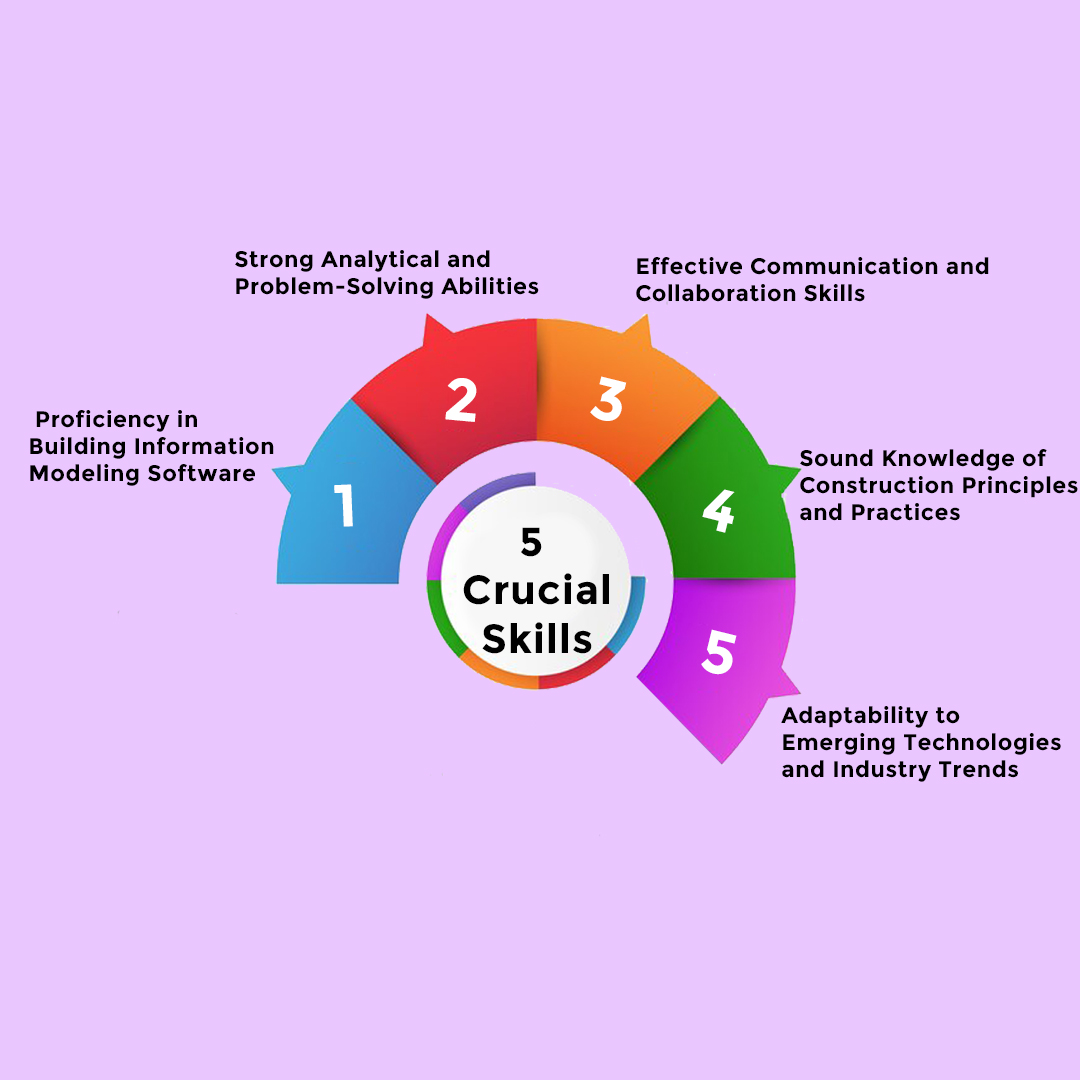5 Crucial Skills Every Building Information Management (BIM) Graduate Should Master
Published Date: 18 Oct 2023

For graduates in Building Information Management (BIM), acquiring certain key skills is fundamental to excel in the field of construction and project management. Here are the five essential skills that every BIM graduate should strive to master:
1. Proficiency in Building Information Modeling Software
Mastery of BIM software is integral for graduates to effectively create and manage digital representations of physical and functional characteristics of construction projects. Having a strong command over software tools like Revit, ArchiCAD, and AutoCAD enables graduates to efficiently generate and manage accurate 3D models, fostering effective collaboration and streamlined project execution.
2. Strong Analytical and Problem-Solving Abilities
In the complex realm of construction, the ability to analyze intricate data sets and identify potential challenges is vital. BIM graduates should hone their analytical skills to interpret project data, detect discrepancies, and proactively resolve any emerging issues. This critical thinking approach helps in ensuring the seamless execution of construction projects and mitigating potential risks.
3. Effective Communication and Collaboration Skills
Given the collaborative nature of construction projects, effective communication skills are indispensable for BIM graduates. The capability to communicate complex technical concepts to diverse stakeholders, including architects, engineers, and contractors, fosters efficient teamwork and ensures a shared understanding of project goals and requirements.
4. Sound Knowledge of Construction Principles and Practices
A comprehensive understanding of construction principles and practices is crucial for BIM graduates to effectively apply BIM methodologies within the context of real-world construction projects. Proficiency in construction techniques, materials, and industry standards is essential for generating accurate and comprehensive digital models that align with the practical aspects of construction implementation.
5. Adaptability to Emerging Technologies and Industry Trends
The construction industry is continually evolving, with the introduction of innovative technologies and changing industry trends. BIM graduates should stay updated with the latest advancements in construction technology, such as virtual reality, augmented reality, and drone mapping, and be adaptable to integrating these emerging tools into their BIM processes. Embracing new technologies helps graduates stay competitive and ensures the implementation of state-of-the-art practices within the construction landscape.
By focusing on mastering these five crucial skills, BIM graduates can position themselves as competent professionals in the construction industry, equipped to handle the complexities of modern construction projects, foster effective collaboration, and drive innovation in the field of Building Information Management.

Don't Miss Your Chance - Enroll at Aarambha College Today!
Make the right choice for your future. Join Aarambha College now and get ready for a great career in hotel management or business information management. Start your journey today and open the door to endless possibilities and success.
Frequently Asked Questions'
What are the skills of BIM?
BIM involves a thorough understanding of the technologies required, including software, cloud computing and IT systems, as well as industry terminology and international standards. An ability to work collaboratively is essential, along with strong interpersonal skills for working with other project members and clients.
What are the key responsibilities of a BIM manager?
BIM Managers provide leadership to ensure that BIM policies, procedures, standards, and processes are properly implemented and maintained throughout the course of a project. BIM Managers also analyze user performance and BIM usage reports to identify areas where more training or assistance may be required.
What are the critical success factors of BIM?
The topmost five success factors for BIM implementation in order of importance are: standard platforms for integration and communication; cost of development; education and training; standardization (product and process); and clear definition and understanding of users' requirements.